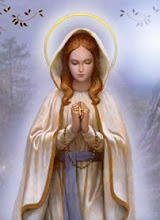Why Is The Mass Important?
Christianity is a religion of community. Table fellowship was one way in which Jesus gathered his followers. It was at the Last Supper, in table of fellowship, that Jesus instituted what we now know as The Eucharist.
The Mass has its’ origins in the Early Christian community. Through the Mass we remember and renew our connection with our ancient Christian brothers and sisters. In the second century, St. Justin described the celebration of Mass in a letter to a Roman official. In it we see elements of the Mass we celebrate today:
a) The Liturgy of the Word: “the memoirs of the apostles or the writings of the prophets are read”; b) The Homily: “the president in a discourse urges and invites us in an imitation of these noble things”; c) The Prayer of the Faithful: “ …then we stand up together and offer prayers”; d) The Liturgy of the Eucharist: “When we have finished the prayer, bread is brought, and wine and water, and the president similarly sends up prayers and thanksgivings…and the congregation assents, saying the Amen.” This was followed by the “distribution and reception of the consecrated elements.”
1. The Priest who is the “Persona Christi”; 2. The Word, “In the beginning was the Word and the Word was with God and the Word was God” (John 1:1); 3. The Eucharist, “Take, eat; this is my body” (Mathew 26:26); 4. The People, “For where two or three are gathered in my name, I am there among them” (Mathew 18:20).
Written by Mark Weber
LA LITURGIA Y EL NUEVO MISSAL ROMANO
¿Por qué es importante la Misa?
La Misa tiene sus orígenes en las primeras comunidades Cristianas. A través de la Misa recordamos y renovamos nuestra conexión con nuestros hermanos y hermanas de las antiguas comunidades Cristianas. En el segundo siglo, San Justino describe la celebración de la Misa en una carta a un oficial romano. En ella podemos ver elementos de la Misa que celebramos hoy día:
La Liturgia de la Palabra: las memorias de los apóstoles o las escrituras de los profetas son leídas”, b) La Homilía: “ el que preside durante su homilía nos alienta y nos invita a que imitemos las nobles actitudes”; c) La Oración de los Fieles: “... y luego nos paramos juntos y ofrecemos oraciones”; d) La Liturgia de la Eucaristía: “Cuando terminamos la oración, se lleva el pan, el vino y el agua, y el que preside igualmente eleva sus oraciones y acción de gracias... Y la congregación responde Amén.” Enseguida se continúa con la “distribución y la recepción de los elementos consagrados”.
El Documento del Concilio Vaticano II, Constitución sobre la Sagrada Liturgia, nos dice que la Liturgia es la “cumbre a la cual tiende la actividad de la Iglesia” y al mismo tiempo “la fuente de donde mana toda su fuerza.” La Misa es el motivo y la cumbre de nuestra vida católica. Todas las acciones en la Misa son para que dirijamos nuestra atención a Cristo, la cumbre de nuestra fe. Llenos del Espíritu Santo, salimos de Misa llevando a Cristo al mundo. Llegamos a ser la fuente de la cuál brota la Buena Nueva de la salvación. Durante la Misa, llegamos a ser el cuerpo visible de Cristo en la tierra.
Es a través de la Misa que nos encontramos a Cristo de cuatro maneras:
El sacerdote quien es la “Persona Christi”; 2. La Palabra, “Al principio era la Palabra, y la Palabra estaba con Dios, y la Palabra era Dios” (Juan 1:1); 3. La Eucaristía, “Tomad y comed; este es mi cuerpo” (Mateo 26:26); 4. La asamblea, “Donde se reúnen dos o tres en mi nombre, Yo estoy entre ellos” (Mateo 18:20).
Esta es la razón del por qué la Misa es tan importante en nuestras vidas como Católicos.
Como lo hicieron los primeros cristianos, nos reunimos juntos a encontrar a Cristo y a ser parte del Cuerpo de Cristo para el mundo que nos rodea.
Escrito por Mark Weber
y traducido del inglés por Luz Henriquez

